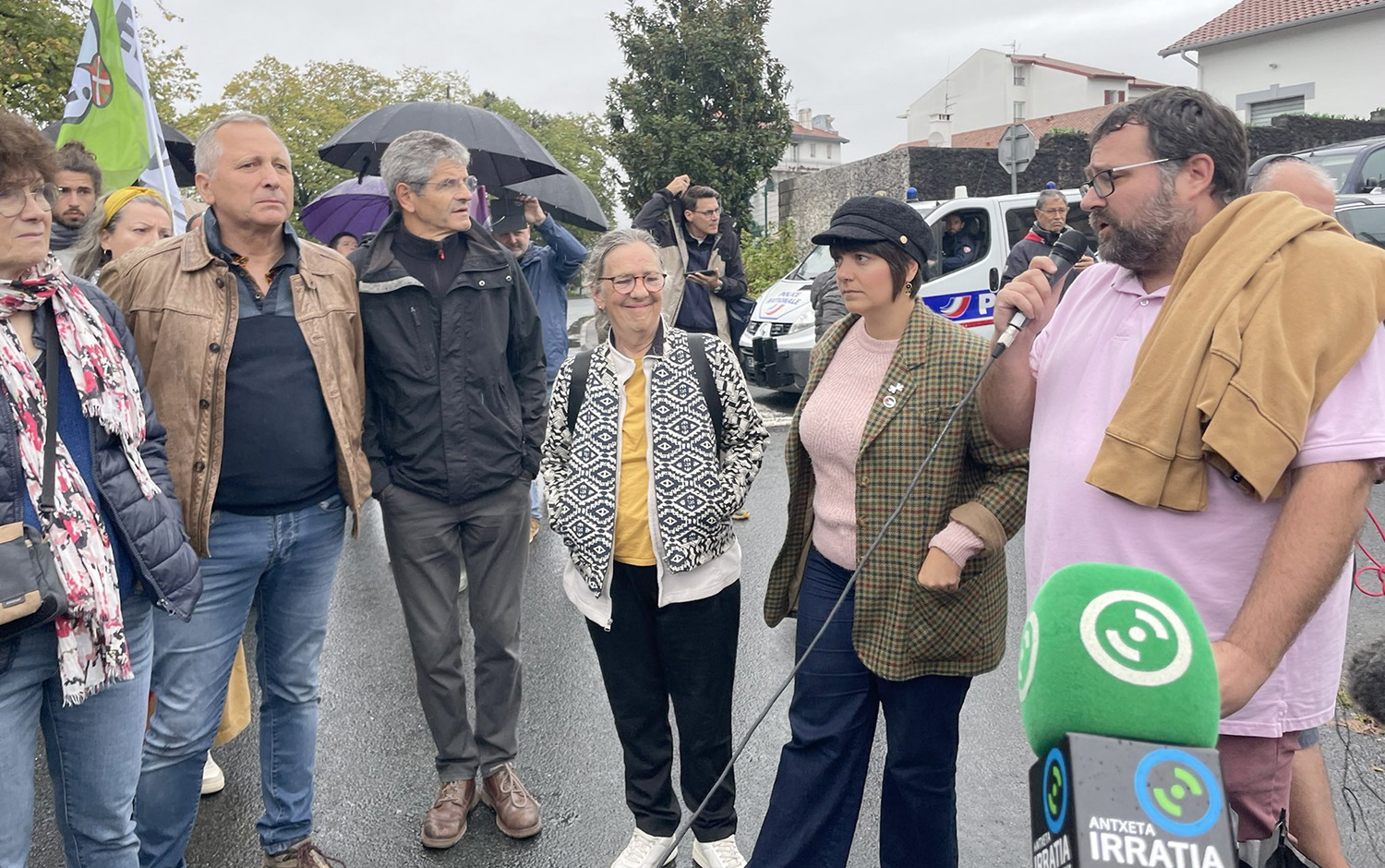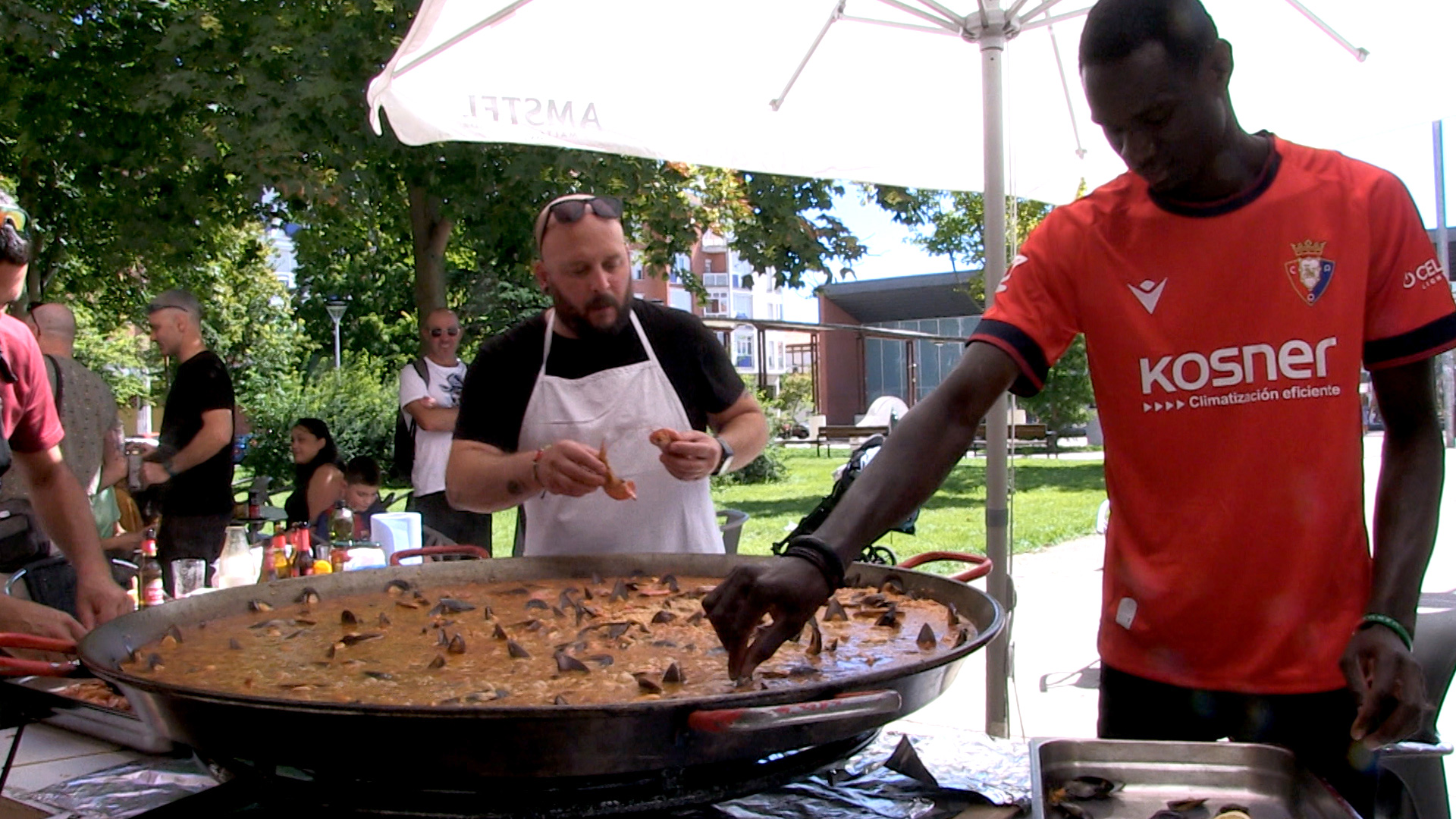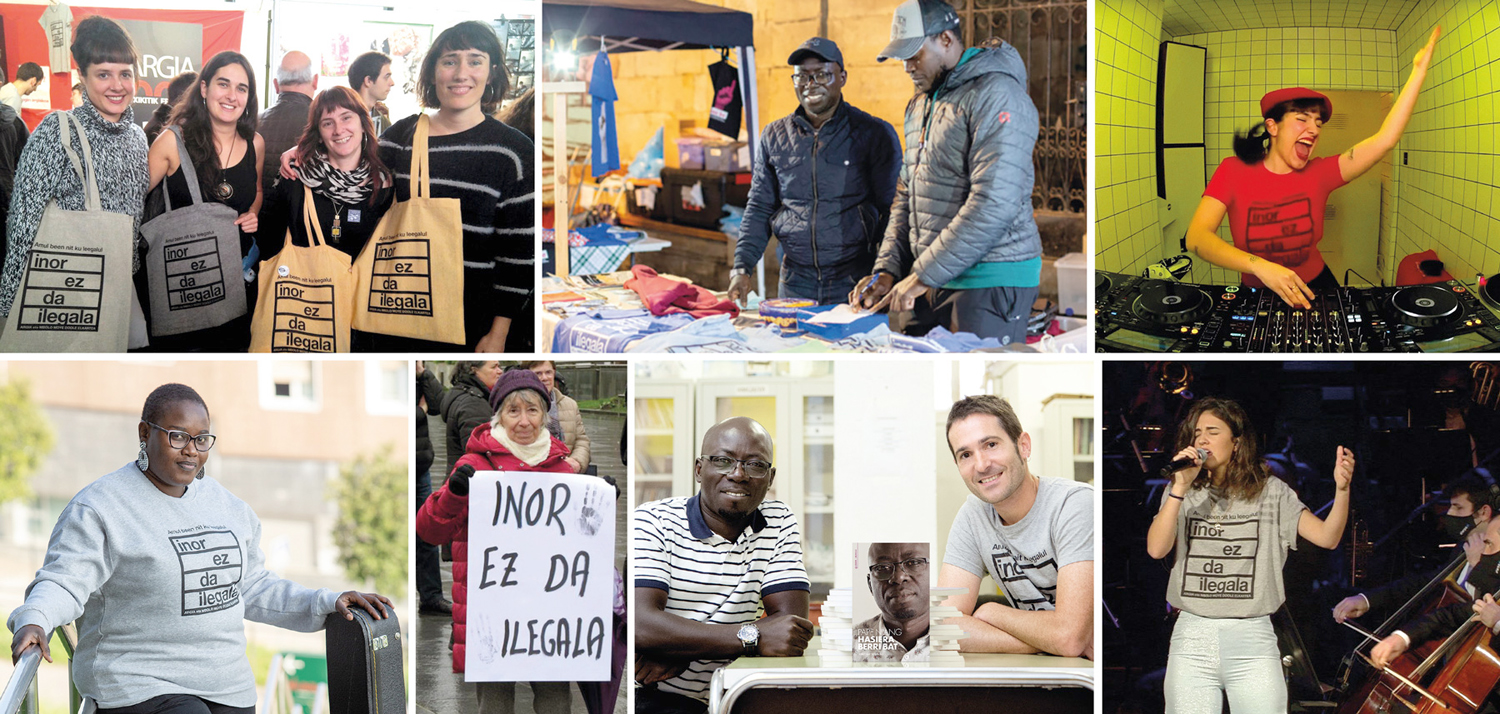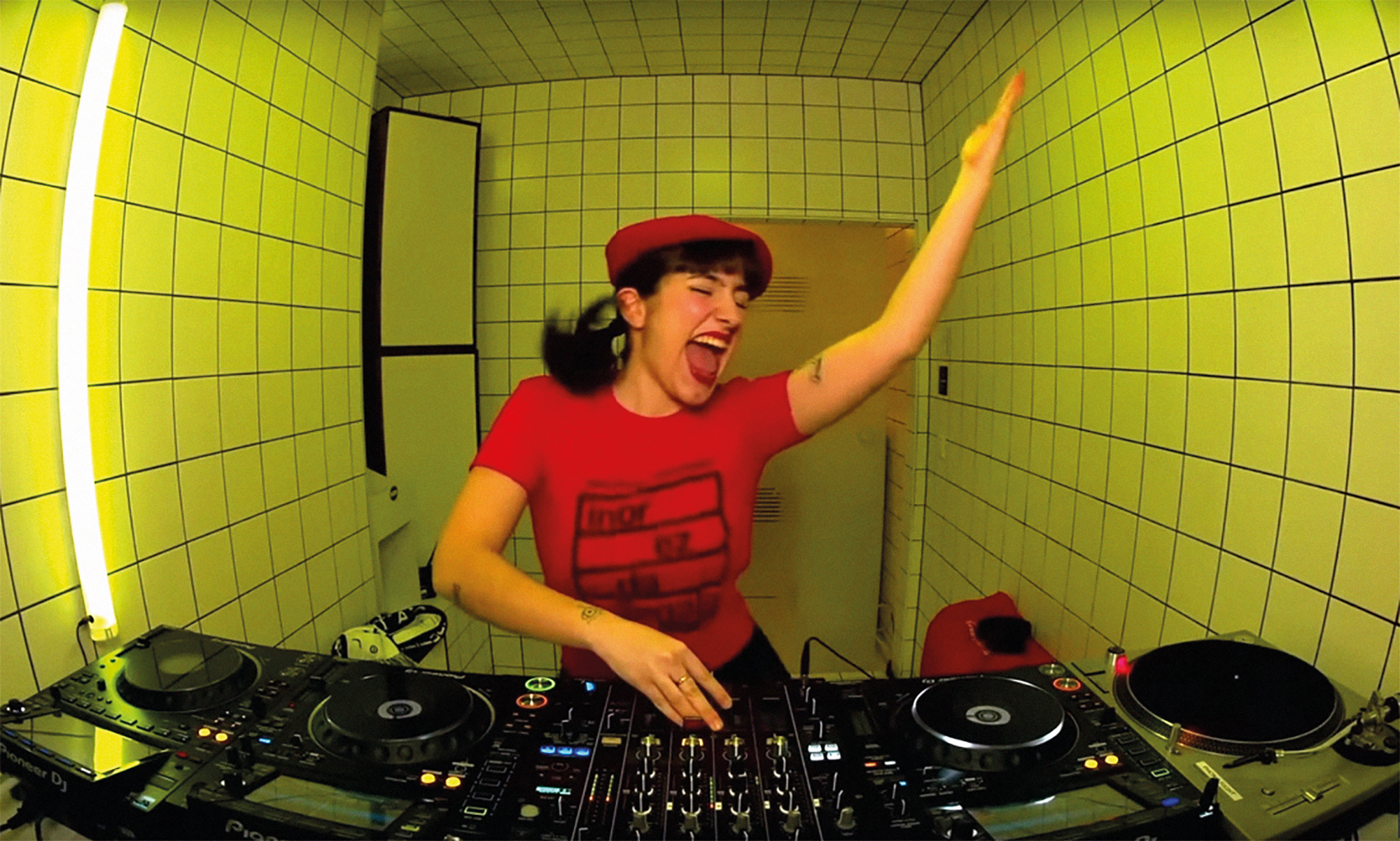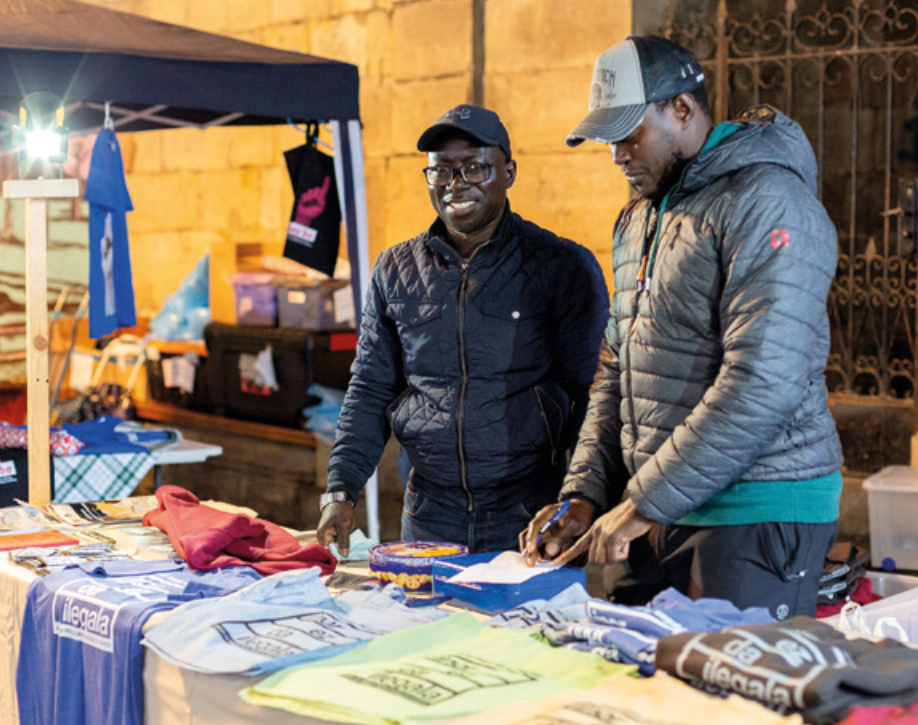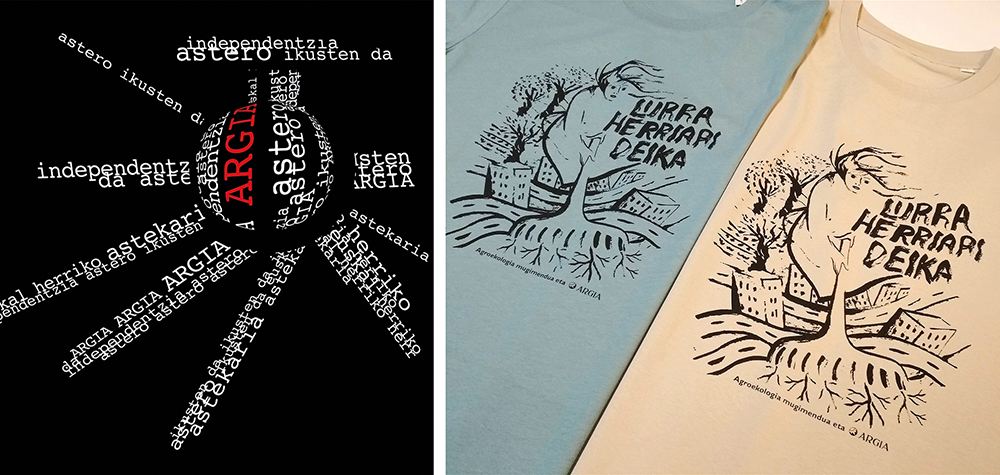The students of Leizaran Institute have come to the Pape Niang Tertulia with lots of questions
Pape Niang has been at the Andoain Institute, where he has told his migratory experience. The 16-18 year-olds, Pape Niang, who had previously read the book A New Beginning, filled the curiosity room, reflections and questions. One of the main functions of the school is the education of critical people.

More than 50 young people have participated in the tertulia, of which almost half (4th ESO students) have read the book Pape Niang, Hasiera berri bat, work published by ARGIA within the project Inor ez da ilegala. As explained by Professor Edurne Hurtado, they have read it in the school hours to discuss together the topics extracted in it. He told us that he gave them a lot, “because he has many bulls”, and that more than one student has ended up very excited in some passage, especially students who are children of migrants or migrants (there are many in the institute). Precisely, one of the objectives of Hurtado has been to empower these students with the excuse of the book. “They’ve also been surprised by some of the things in the book. 'Do people know what France is doing in Senegal? This has to be told, it is not fair!’, said the students, alarmed,” he said.
Hurtado, to finish everything he had worked, was clear: Pape Niang wanted me to tell her experience directly to the students. And so he did. Senegaldi has told the young people about the physical journey and the internal journey to the Basque Country, the fascination generated by Europe, the harshness and risk of the journey, the police persecution, the humiliations suffered, the imprisoned times, the exploitation suffered… and told them that Africa is very rich in resources, but that all that good does not reach the citizenship, between neocolonialism and its corrupt rulers. “But those countries and multinationals that continue to colonize will sooner or later, but they will go, because we have new authorities in African countries, which have another way of thinking, and we have hope for change.”
"Those countries and multinationals that continue to colonize will sooner or later, because we have new authorities in African countries, and we hope this will change," he added.
Pape Niang has avoided the cruellest passages, it was clear what to convey to these young people. Believe in something and tell them to progress, to try, to be brave, “always ahead.” Despite having suffered a great deal on the road, he also told them that he has learned a great deal: “Motivation and courage have helped me to get to the place where I am; a few years ago I was persecuted by the police, now I am in the port of Santurtzi working with the stain. I have bad, mediocre and good days, and I stay with the last ones, because they are the ones that help me to move forward.” And around racism, as short as circumspect: “Racism is everywhere, there is no country or region that is safe from racism, but each person has the possibility to manage it, to act.”
“Was it worth it?”
Participation has been high, there have been a lot of questions and feedback, and we've seen a lot of hands up. What's been the hardest part of the journey? Would you recommend to your fellow countrymen that they approach? Why did you choose Bilbao as a destination? Do you intend to return to your hometown? Can you say that all this effort has been worth it? When he crossed the Mediterranean and touched the earth, what struck the most? Has the journey changed you on a personal level? (“I have the same ideas, but now I play with my head and with my first heart,” Niang said.) Can non-Senegalese people participate in the Mbolo association? If the migratory journey is made by a woman, is it different? Did they travel with you in the skate and the two pregnant women came well?... It has been an enriching exchange of interactions and impressions, the students have brought to light issues that have given much to think about.
"I have the same ideas, but now I play with my head and before with my heart."
Edurne Hurtado has also participated. The hopeless professor has taken advantage of the tertulia to refute false speeches (and denounce media manipulation), to explain that the Basques have migrated a lot in history, to talk about colonialism and neocolonialism. There is no doubt that they want people in a critical spirit at the Leizaran Institute in Andoain.
Beyond what can be learned in the textbooks, we return home in the hope that the testimonies and experiences shared by Niange have left a mark on the students of Andoain.









